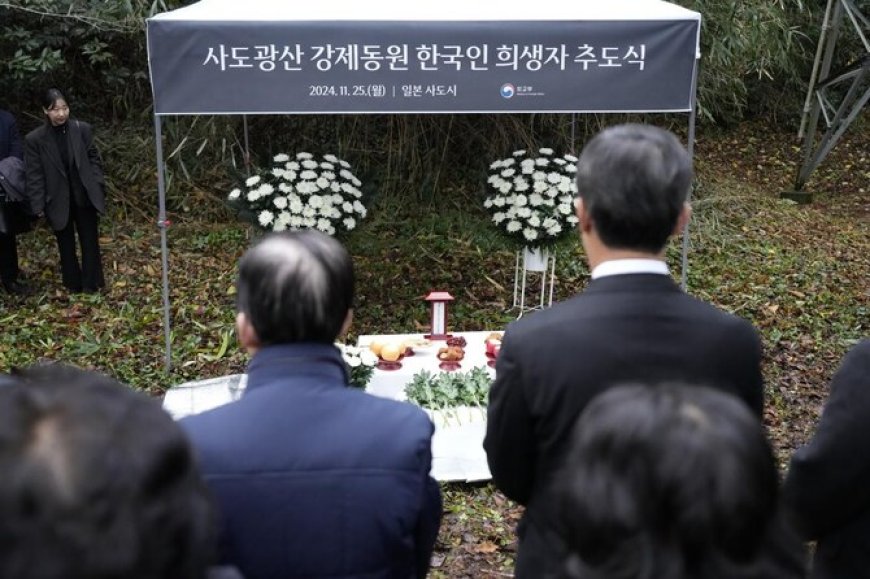South Korea Honors Forced Laborers in Japan After Skipping Joint Event
Monday was a memorial day for South Korea honoring wartime workers compelled to work at Sado gold mines in Japan. This came one day following South Korea's boycott of a comparable event hosted by Japan. Held close to the former Fourth Souai Dormitory for Korean workers on Sado Island, the ceremony featured nine family members of laborers, the ambassador of South Korea to Japan, and other dignitaries. Recent listings of the hostel and associated sites as a UNESCO World Heritage site include

Monday was a memorial day for South Korea honoring wartime workers compelled to work at Sado gold mines in Japan. This came one day following South Korea's boycott of a comparable event hosted by Japan. Held close to the former Fourth Souai Dormitory for Korean workers on Sado Island, the ceremony featured nine family members of laborers, the ambassador of South Korea to Japan, and other dignitaries. Recent listings of the hostel and associated sites as a UNESCO World Heritage site include
Attending the Korean-led celebration in dark suits, participants observed a moment of silence and made offerings including white chrysanthemums, dried fish, apples, and pears. Emphasizing the need of remembering history, Ambassador Park Choel-hee offered sympathies. "We will never forget the tears and sacrifices of the Korean workers," he declared. The monument sought to comfort bereaved families and demand cooperative efforts to heal past hurts.
After South Korea ignored Japan's Sunday memorial, tensions between the two countries flared back. Japan's celebration contained appreciations of workers' efforts but made no mention of official apologies or forced labor. Declaring it fell short of agreements over the Sado site's UNESCO designation, South Korea's Foreign Ministry boycotted the ceremony citing differences over the content of the speech.
According to historical accounts, during World War II over 1,500 Koreans were compelled to labor under difficult conditions in the mines. Although Japan introduced additional exhibitions honoring Korean laborers in city-operated museums, concern over missing items connected to the UNESCO site still exists. South Korea said that their own event was a strong statement opposing compromise on historical matters.
Relations remain tense as Japan is accused of being insensitive about divisive political leaders connected to their memorial. Though he pointed out South Korea's absence, Japan's Chief Cabinet Secretary Yoshimasa Hayashi stressed the need of collaboration. Still, the argument highlights continuous difficulties in honoring common history while working for regional unity.













































